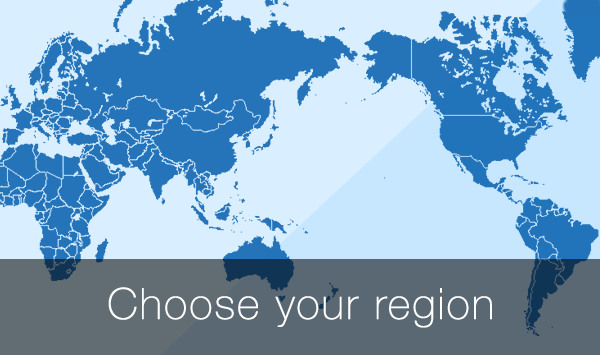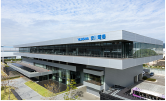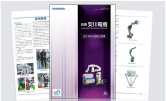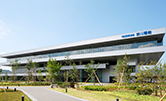Business risks
At Yaskawa, the Executive Committee and the Board of Directors monitor risks associated with the execution of management, including economic and market conditions. In addition, we have established the Basic Rules for Crisis Management with the aim of promptly and appropriately address risks that directly or indirectly affect the management or business operations of Yaskawa Group, and have established the Risk Management Committee and each expert committees, which are operated by the Chairperson of the Crisis Management Committee appointed by the President in accordance with these rules. The Risk Management Committee implements appropriate measures, including the development of a risk management system, the planning and promotion of risk management education, risk assessment, and the establishment of countermeasures headquarters according to the level of risk when it occurs. The status of risk management is regularly reported to the Executive Committee such as the Management Committee, the Board of Directors and the Sustainability Committee to supervise and monitor company wide risk management and strengthen risk management. Important risks that may affect Yaskawa Group’s performance and financial position and the measures for them include the following. In addition, compliance, quality issues, natural disasters (earthquakes, floods, etc.), terrorism, conflict, and legal regulations are also recognized as risks and measures will be taken. Matters concerning the future in the text are based on Yaskawa Group’s judgment as of the end of the fiscal year under review.
(1) Risks related to the management environment
Geopolitical risk(Changes in International Relations)
| Description of the risk |
Yaskawa Group has production bases in Japan and overseas, including China, and provides products and services to customers on a daily basis through sales bases in 30 countries around the world. As a result, changes in international relations, such as those between the United States and China and the situation in Russia and Ukraine, as well as social and environmental changes and changes in laws and regulations that result from changes in international relations, may have an impact on our business activities.
In particular, Yaskawa Group’s operating results and financial condition may be affected when development, production, logistics, and sales activities are restricted, which hinder supplying products to customers by restrictions on exports and technology transfer and tariff increase in each country. |
|
Measures
|
In response to these risks, we regularly monitor political and economic conditions and trends in laws and regulations in each region through our business bases, and have established a system that enables us to quickly ascertain the impact on our business.
In addition, when a wide range of business activity risks arising from geopolitical risks is materialized, the company takes prompt initial responses through the Risk Management Committee at the headquarters and works to minimize damage by building an effective global incident response system in cooperation with each expert committee and the management committee.
In recent years, in order to strengthen the monitoring of changes in global laws and regulations which have a significant impact on our business, we have established a global control system centered on the legal department of the headquarters by assigning a person in charge of laws and regulations to overseas subsidiaries and other global bases in addition to the domestic bases and headquarters.
|
(2) Risks related to the business environment
Risks related to materials procurement and logistics
| Description of the risk |
Yaskawa Group procures raw materials such as steel materials and various parts from a number of suppliers globally, and supplies products globally. However, it may not be able to obtain and supply necessary quantities continuously due to surging procurement prices, increasing demand in the industry, and changes in international relations, such as the situation between the United States and China, Russia and Ukraine. Furthermore, due to natural disasters, expansion of infectious diseases, accidents, and worsening business conditions, it may be difficult for suppliers to provide Yaskawa Group with parts and raw materials in a stable manner. |
|
Measures
|
To address these procurement risks, Yaskawa Group is working to strengthen its supply chain. For example, we are building relationships of trust through dialogue with suppliers, diversifying our suppliers globally, responding to demand fluctuations by ensuring appropriate inventory levels and promoting local production and procurement, expanding transportation means and routes, and enhancing our responses to disaster risks through the formulation of Business Continuity Plans (BCP) for our domestic and main overseas bases. In addition, we are working to identify risky parts early and strengthen company-wide measures, and for parts that continue to be hard to come by, we are strengthening our response by changing the design to parts that are available. |
Risk of exchange rate fluctuations
| Description of the risk |
Yaskawa Group is exposed to the risk of exchange rate fluctuations because it operates globally, and its business partners are located all over the world. In addition to selling and providing products and service and purchasing raw materials and parts in local currencies such as USD, EUR, and CNY, Yaskawa Group also exports products in local currencies. Unexpected fluctuations in exchange rates could weaken the competitiveness of Yaskawa Group’s products and adversely affect its operating results and financial condition. In addition, as Yaskawa Group holds assets and liabilities denominated in local currencies, foreign exchange rate fluctuations may have an adverse effect on Yaskawa Group’s financial position, which is reported in JPY.
For the year ended February 28, 2025, the foreign exchange sensitivity (Effect of 1% change from historical exchange rate (USD:152.7 JPY, EUR: 164.0 JPY, CNY 21.12 JPY, KRW: 0.111JPY))on revenue was approximately 1.38 billion JPY in USD, 730 million JPY in EUR, 1.13 billion JPY in CNY, and 380 million JPY in KRW, while that on operating profit was approximately 250 million JPY in the USD, 80 million JPY in EUR, 280 million JPY in CNY, and 160 million JPY in KRW. |
|
Measures
|
In order to address the risk of exchange rate fluctuations, Yaskawa Group is working to build an earnings structure that is resistant to exchange rate fluctuations by promoting local production and procurement in addition to executing forward exchange contracts and currency hedging. |
Risk of increased competition
| Description of the risk |
Yaskawa Group has strong competitors in each of its business areas. In the face of intensifying price competition in particular, there is no guarantee that Yaskawa Group will remain competitive in the future, even in areas where it has a high market share. Intense price competition may adversely affect Yaskawa Group’s performance and financial position. In addition, it is necessary to introduce products of the Group in a timely and appropriate manner in order to ensure competitiveness in technology and quality. If the competitiveness of Yaskawa Group’s products is relatively weak or if the timing of product rollout is inappropriate, Yaskawa Group’s performance and financial position may be adversely affected. |
|
Measures
|
Through i3-Mechatronics, the Group strives to differentiate its products and services and add high value by providing optimal solutions to customers. Led by the Yaskawa Technology Center, we are continuously strengthening our cross departmental R & D efforts to develop the world’s first and best innovative products. We are also working to shorten the development period by thoroughly improving efficiency and to ensure the timely release of highly cost competitive products to the market. |
Risk related to climate change
| Description of the risk |
With regard to climate change, there is a possible risk of “transition” caused by changes in policies, regulations, and other climate change measures, as well as changes in social demands. Examples include increases in fuel and material procurement costs resulting from the introduction of carbon prices and carbon taxes by national governments, and increases in costs such as purchasing green power resulting from the introduction of national carbon emissions policies and emissions trading and the tightening of emissions regulations. |
|
Measures
|
In response to these risks, Yaskawa Group has expressed its support for the TCFD recommendations on climate change, promoted various activities, including participation in a project to support scenario analysis of climate risks and opportunities in line with the Ministry of the Environment’s TCFD, and disclosed climate-related information based on the TCFD recommendations. We will continue to enhance the disclosure of climate-related information, and continue to conduct business activities that are even more environmentally friendly in order to contribute to the realization of a sustainable society and further enhance our corporate value. The Sustainability Committee, chaired by the President, monitors activities to ensure consistency between risk assessment and materiality analysis. For overall implementation, including other measures, under the environmental promotion system of an environmental promotion manager appointed by the President, the quality of activities is improved through the PDCA cycle. |
Risk related to human rights
| Description of the risk |
There is a social demand to address issues such as forced labor and child labor by not only our company but also our business partners. In addition, laws and regulations requiring human rights initiatives are being introduced in various countries and regions, and there is a risk of violation of laws and regulations by not responding appropriately. Inappropriate responses to these human rights issues may lead to a risk that our group’s competitiveness could suffer from a loss of public trust. |
|
Measures
|
We have established respect for human rights in the Yaskawa Group Code of Corporate Conduct based on the Universal Declaration of Human Rights and the United Nations Guiding Principles on Business and Human Rights, and we are promoting measures that respect the human rights of all people. The promotion system is led by the department in charge of sustainability, the department in charge of general affairs and the department in charge of procurement, and we are working to respect human rights in Yaskawa Group and in the supply chain. In regard to these initiatives, the Sustainability Committee deliberates and monitors measures on a regular basis.
In addition, we will identify and assess the negative impact and risks on human rights of domestic Group employees and major business partners, implement appropriate measures, and disclose information after conducting follow-up surveys and monitoring. Through these initiatives, we will continuously respond to the ever-changing social demands and issues related to human rights. |
Information Security Risks
| Description of the risk |
In the course of our business activities, we strictly manages and handles the personal and confidential information of customers and business partners. However, there is a possibility that unforeseen circumstances may occur such as cyber attacks, unauthorized access, data destruction, exploitation, or loss. If such information is leaked outside the company or if false information about our company is disseminated on social media, the trust of the market, including customers and investors, could be lost and business continuity could be adversely affected. Significant security risks include server system down and network failure due to cyber attacks, unauthorized access, and ransomware or virus infections. This could hinder business continuity or decrease productivity. There are also risks such as privacy infringement, copyright infringement, and disclosure of confidential information due to incorrect use of generated AI. There are also concerns that our company may suffer secondary damage due to incidents at our business partners. |
|
Measures
|
We regard information security risk as an important management issue and are working to implement a top down management system and operation. In normal times, we promote activities to strengthen our information security infrastructure. We monitor and collect information on the latest cyber attacks that are becoming more sophisticated and sophisticated, as well as trends in vulnerability information and brand surveys that occur daily. In the event that information security risks related to the Company are foreseen or discovered, the risk management system promptly instructs appropriate responses, and in cooperation with the Computer Security Incident Response Team (CSIRT), the Company responds to incidents to minimize risk damage and maintain and strengthen resilient information systems that enable early countermeasures and recovery.
In recent years, there has been an increase in business operations and development using generative AI. Therefore, we are promoting the introduction of tools that give due consideration to risk management such as information leakage, use of incorrect information, and infringement of rights, and the appropriate use of such tools through internal rules and e-learning training. As for the security measures of our business partners, we ask related companies to strengthen their response based on the risk results visualized, and periodically check their response status. Through these activities, our company minimizes the risks associated with information security and provides customers with highly reliable products and services. |
Risks related to securing human resources
| Description of the risk |
As the labor shortage continues to grow on a global scale, competition is intensifying to acquire human resources, including those with advanced expertise. In addition, in order for each employee to continue to demonstrate his or her abilities with initiative, it is becoming more important to develop human resources who can contribute to business expansion on a global scale, transcending barriers such as culture, customs, and language, and to create a working environment in which employees can live in good physical and mental health.
Under these circumstances, if there is a delay in hiring and developing human resources, or if there is an outflow of talented human resources, the competitiveness of the Group may decline. |
|
Measures
|
As part of our human capital management initiatives aimed at realizing our Vision 2025, we will place emphasis on dialogue with employees. At the same time, we implement human resources strategies linked to our management strategies by formulating human resource requirements necessary for the execution of business strategies and strengthening human resources management that encourages human investment and the active participation of diverse human resources based on the visualization of human resource data. In addition, in order to formulate sustainable management strategies and achieve high results, we select candidates for the next generation of executives, who will lead the Yaskawa Group’s future, at an early stage, and train and promote them through training programs and other means.
In addition, we will focus on “deepening understanding of Yaskawa Principles,” “ advancing diversity and inclusion, ” and “creating a comfortable working environment ”. By constantly monitoring these efforts through active communication with employees, such as an employee awareness survey (ES questionnaire) and direct dialogue with management, we can quickly reflect these efforts in improving human resources measures and accelerate improvements in productivity and motivation. By improving the centripetal force of each human resource (employee), which is our human capital, on a global scale and strengthening our brand power (being chosen and trusted), we will continue to acquire and secure sustainable human resources. |
 Region
Region



 Principles & vision
Principles & vision
 Procurement
Procurement
 Sustainability for the Yaskawa Group
Sustainability for the Yaskawa Group
 Customer satisfaction
Customer satisfaction
 Supply chain
Supply chain
 Social contribution
Social contribution
 Compliance & risk management
Compliance & risk management
































